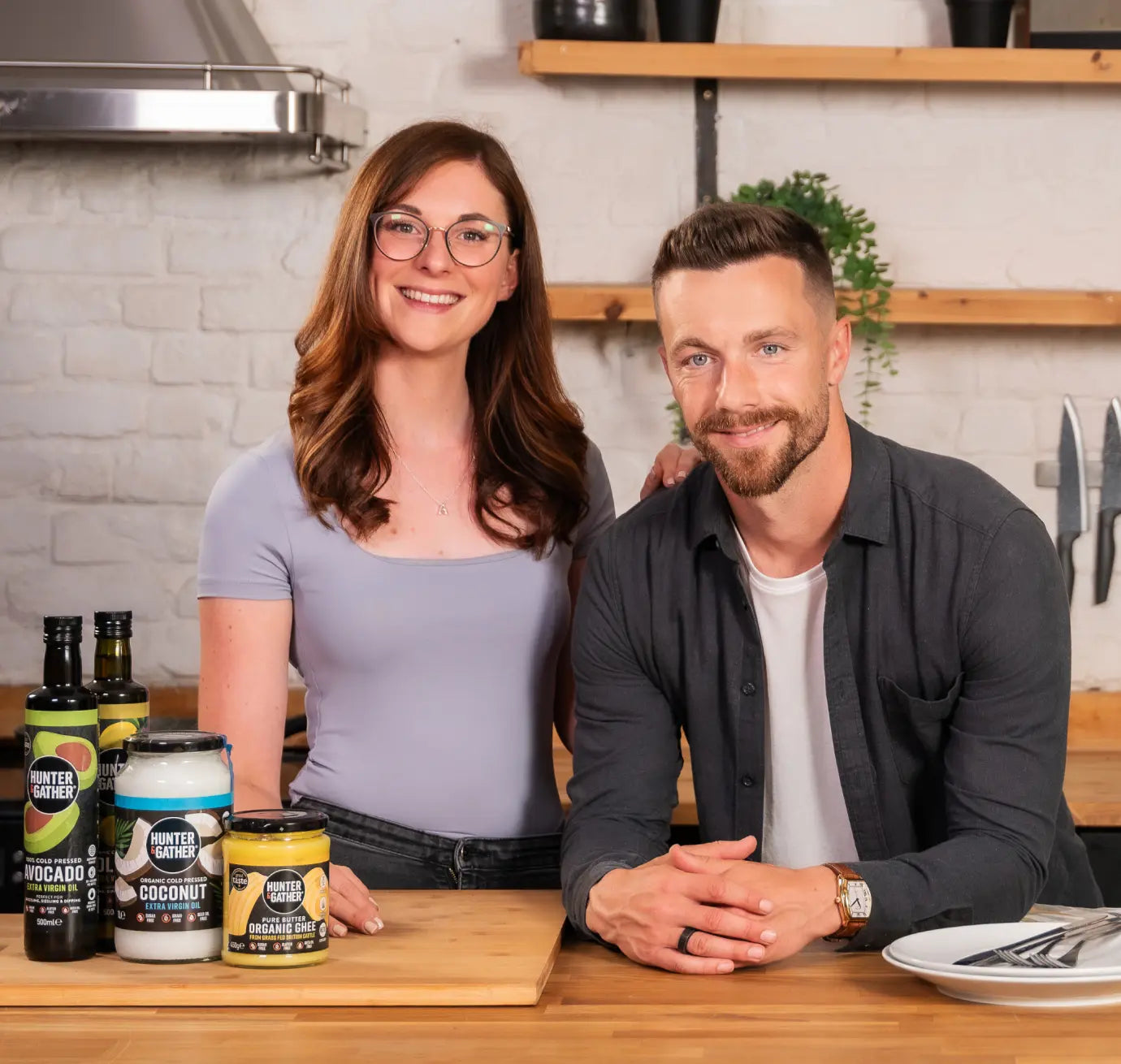- New Arrivals
- Help
-
Shop All Products
354.000+ zufriedene Kunden

Collagen
Per Serving
Collagen





Pure bovine collagen peptides from grass-fed cattle, raised in pristine pastures of Europe. No fillers, no additives, no nonsense, just the good stuff your body craves.
 Our Collagen Peptides
Our Collagen Peptides
 The Other Guys
The Other Guys
Lab tested for purity
No unnecessary fillers, bulkers or chemical preservatives! Other brands are not the same.
 Ingredients
Ingredients
Bovine Collagen (Grass Fed)
As we age, even as early as our 20s, collagen levels start to decline. This can lead to noticeable signs of ageing aka “falling apart” – think wrinkles, brittle nails, joint pain, and weaker bones. Plus, modern-day diets can leave us deficient in collagen, while our ancestors got plenty from eating nose to tail.
But there's good news - supplementing with our high-quality Hunter & Gather collagen powder can help. just add 1 -2 scoops to your daily coffee, smoothie, or water, to help you feel your best every day.
Collagen supports a healthy gut lining for better digestion and nutrient absorption. It nourishes your skin from within for a plump, youthful complexion and helps to maintain strong bones, muscles and flexible joints, allowing you to move with ease no matter your age. Collagen also promotes better sleep, cellular detoxification, and liver health.
Just 13g (2 tablespoons) of our grass-fed Bovine Collagen Peptides per day can work wonders for dry skin, thinning hair and painful joints.
We only use 100% recyclable resealable pouches & 100% plastic free packaging for sending your orders too. Our Bovine collagen comes from grass fed European cattle instead of South American (saving air transport). The collagen is made from the hide of the cattle, which would otherwise go to waste from the meat industry. By utilising collagen peptides we are helping to ensure all of the animal is utilised from nose to tail as well as supporting our optimal health.

Hi, we’re Amy and Jeff, co-founders of Hunter & Gather, an ancestrally inspired lifestyle brand.
After our own health journeys led us to a more natural way of living, we launched Hunter & Gather in 2017. Eight years on, we’re proud to have supported hundreds of thousands of people on their path to better health.
We’re here to help you reconnect, with real food, practical guidance and the tools you need to thrive.
Our Story
Collagen is one of the most abundant proteins in your body - in fact about 30% of our protein composition. Collagen production declines as we reach our mid-20s and beyond. You can take powdered collagen (which is a real food nose-to-tail powder) made from grass-fed cattle or wild-caught fish to nourish your body from the inside out.
Our collagen comes from pasture-raised cattle that graze on the lush pastures of the French countryside. Contrary to what many marketing departments out there want you to believe, at this time there is no ‘organic collagen’ or 100% grass-fed collagen available. The cattle can come inside over the winter and fed supplementary feeds. We can guarantee that there is no GMO Feeds used. We think it is important to be transparent rather than hide behind marketing terminology.
Rest assured, we work tirelessly to ensure our collagen peptides are sourced from the very best farmers/suppliers possible.
This includes ensuring the highest animal welfare such as no hormones or antibiotics, consistently stringent testing for heavy metals, toxins and pesticide residue along with providing exceptional purity, best flavour profile and the ability to easily dissolve in liquids.
Our collagen is completely free from the top 14 allergens including gluten, soy, dairy and nuts and contains absolutely no sugars, artificial flavours or thickeners. I know it's almost too good to be true!
What’s more, every batch is lab-tested to ensure it is free from heavy metals, toxins and microbes with no solvents ever used in the making of our collagen.
Every pack has a best before date on it. Always store in a dry, cool place and ensure your pack is tightly sealed.
We recommend 5g to 30g is taken daily.
This is, of course, dependant on your lifestyle requirements such as activity levels and current health status.
If in doubt, we recommend you consult with a trained health practitioner that has an appreciation and understanding for integrative/functional healthcare.
Our collagen powder is simply a real food protein powder without anything added and as such can be viewed as a 'real food' ingredient.
This bag is designed for 1 months supply at 2 standard tablespoons / 13g per serving daily.